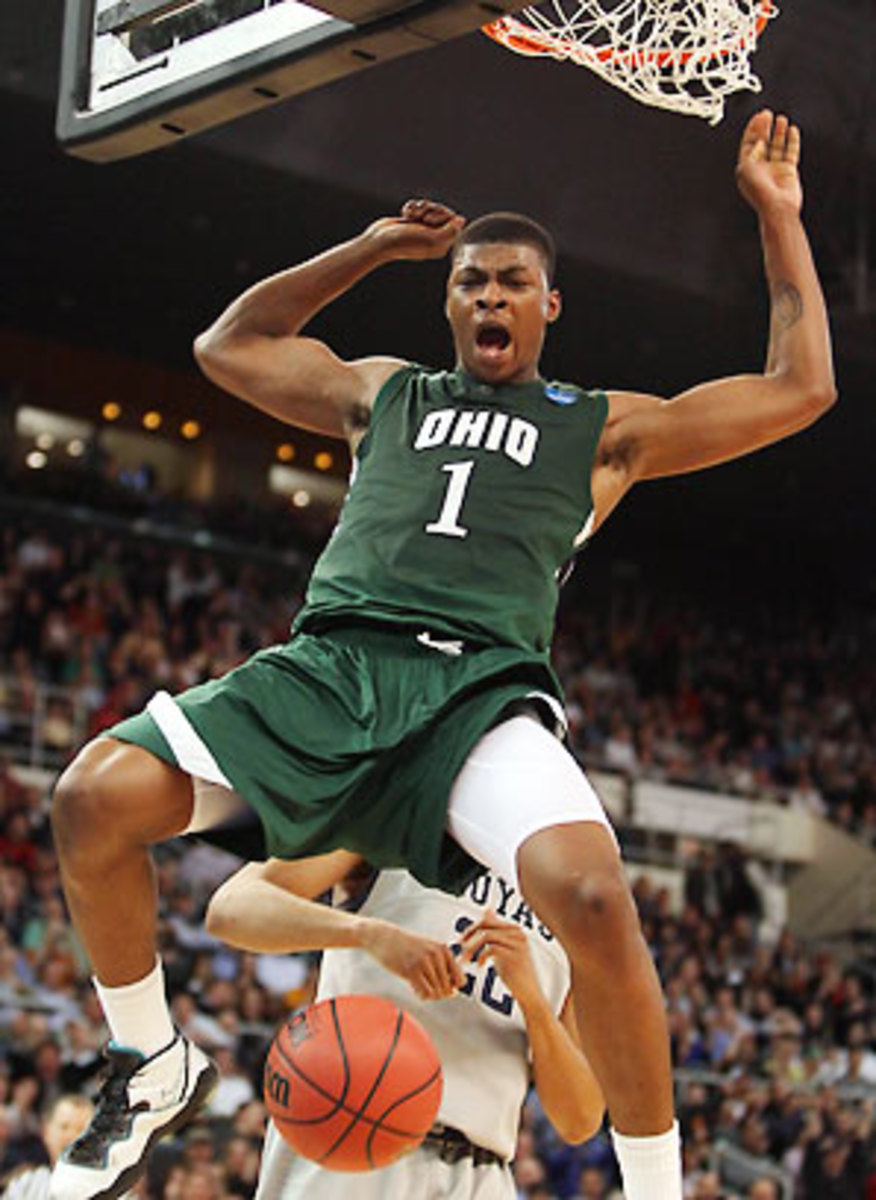The real reason behind NCAA expansion talk: television money
With its durability, structure and life cycle, the NCAA basketball tournament is a kind of organism. And like most living things it has, over time, developed an immune system. There's no better example than what happened in 1989, when men in backrooms plotted to strip the little conferences of their automatic bids -- and were foiled when No. 16 Princeton came within a point of upsetting top-seeded Georgetown.
The antibodies did their work. The event survived and grew stronger.
Today we await the ending of what may have been the most satisfying NCAAs ever, a jubilee of What's Not to Like: the greatest Day 1 in memory, with wins from 13th and 14th seeds; "Farokhmanesh" as a verb; an Ivy League school so dominating a Big Ten opponent that CBS cut away for the second half; a mid-major in the title game; and, not at all incidentally, resurgent TV ratings.
Yet there appears to be a kind of autoimmune deficiency microbe loose on the land. The NCAA, the tournament's putative steward, is on the cusp of messing with the most beloved sporting event in America by throwing it open to 96 teams.
Almost no one beyond the NCAA office wants this, of course.
Not most of "the guardians of the game," people who, with their service on the basketball committee, helped lead the tournament to its current status. Most are too political to talk, and instead grit their teeth as steam escapes from their ears.
Not the fans, who would see the devaluation of the regular season, the trivialization of the conference tournaments, and the transformation of Selection Sunday into a day to parse who deserved a bye rather than who deserved a bid. According to Georgia Tech professor Joel Sokol, unless mid-major and small-conference champions got byes (fat chance), there'd be a plunge in the frequency of seismic upsets.
Certainly not "the membership," which is to say the schools, to whom the NCAA office usually turns when it needs cover for other decisions that seem divorced from the values of the academy.
This decision, rather, rests with one man, NCAA president -- check that, interim president -- Jim Isch. If he decides for a field of 96, Isch will be Mr. Felicity, given that his surname approximates a suffix indicating all things pseudo.
The only substantial support for an expanded tournament comes from a particularly yellow segment of the coaching profession, eager to define success down. (It's a matter of "student-athlete welfare," says Virginia Tech coach Seth Greenberg, a bid bridesmaid two Marches running, disingenuously. At least Jim Haney, who runs the National Association of Basketball Coaches, is honest enough to declare his organization's support "from the self-preservation perspective.") Yet the coaches should be careful what they wish for. You can't tart up a 15-17 record with Bid No. 83. And the blogosphere will surely call just as lustily for the heads of the coaches of the 48 schools that fail to win their opening games.
So that's the essential lunacy of the idea. What about its progeny? Where (Tango Foxtrot) did it come from?
A base place, of course. And to the NCAA's credit, it concedes as much, But it's not simply a matter of the NCAA wanting to capture more money. After all, the organization is eight years into an 11-year deal with CBS that will pay out $6 billion. And a deal is a deal.
It's this, too: That contract was struck back when no one imagined that the bottom would fall out of the economy. CBS is losing hundreds of millions a year on the deal, which like most such contracts is heavily backloaded. By bringing in a cable partner -- probably Turner (which is owned by Time Warner, the parent company of SI.com) -- the NCAA would be able to grant CBS some relief from those three very expensive final years. Yet to make it worth a new partner's while, the tournament needs to generate more "inventory." Not better. Just more.
In other words, as in a big-bank bailout, all of us are paying the price to offset someone else's bad business decision.
The NCAA's Greg Shaheen says that nothing has been decided yet. He says that all parties have until July 31 to sort these things out. That means four more months, right there in Indy, for Isch and Shaheen to ask their neighbors how messing with Hoosier Hysteria -- splitting up the all-comers Indiana state high school tournament into four devalued events by class -- worked out.
A 68-team tournament? Sure. Take the eight teams that suck up all that Selection Sunday oxygen -- the last two at-large candidates in each region -- and have them play off for four spots in the field of 64.
But with a move to 96 teams you're messing with the DNA of the tournament. You're disfiguring the bracket, basketball's own double helix. You're dragging a perfectly healthy product of nature and strapping it to an operating table.
Please, take off your lab coats and recite the pledge you all should have taken: First, do no harm.






